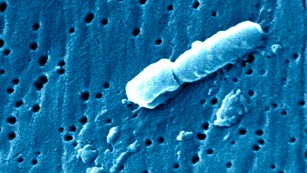Is a cough making your life miserable? Don't blame your body; coughing is the only way your lungs can expel an irritant. The key is to figure what's causing it and then to get your lungs the help they need.
A cough that appears suddenly is usually triggered by an infectious disease, such as cold or flu.
"A majority of coughs actually resolve with just rest and home remedies," said Dr. Sharon Horesh Bergquist, an internist at the Emory Clinic in Atlanta. "So that's the place to start unless there are warning signs of something more serious."
Red flags include coughing up blood-tinged phlegm, a great deal of phlegm or phlegm that is turning thicker and darker; fever; shortness of breath; and wheezing.
"Those are all signs that the cause more likely to be a bacterial than viral infection, such as bronchitis or pneumonia, or perhaps an underlying medical condition," Bergquist said. "But without those signs, it's usually OK to try home remedies for a few days."
Home remedies for cough
Staying hydrated is the best thing you can do for a cough. Liquids thin out the mucus, making it less irritating to the throat and easier for the lungs to expel. Steam from a hot shower can do the same. Saline or salt water drops or spray are another option to moisten the nasal passages and thin mucus.
Adding a cool-mist humidifier, also known as a vaporizer, to your or your child's room can improve the air's moisture content, helping hydrate the lungs, but be sure to clean it daily. (Hot-water vaporizers aren't recommended by the American Academy of Pediatrics because of the risk of scalding or burns).
Other popular home remedies include tea, chicken soup and honey, whether eaten alone or added to drinks.
"Chicken soup has a lot of value if you're sick in general," Bergquist said. "The warmth and spices open up the sinuses. For coughs, hot liquids ease the throat, and honey is quite effective. Studies have compared honey with some of the over-the-counter cough medicines and found it works just as well."
But keep honey away from any infant. Honey can lead to infant botulism because of a baby's immature digestive system. By age 1, their bowels have matured enough that they can eat honey safely.
Your cough should improve over a few days, with mucus looking lighter and thinner, Bergquist said. If that doesn't happen, it might be time to check with a doctor.
Over-the-counter options
The US Food and Drug Administration and the American Academy of Pediatrics point to studies showing that many parents are ignoring guidelines and mixing too many over-the-counter cough and cold medications, thus overdosing their children.
The FDA clearly recommends no OTC meds for children under 2 and no codeine-based medications for children under 12. The American Academy of Pediatrics recently changed its guidance to recommend no OTC medications for children under 4, warning adults to carefully measure the dosages.
At any age, the only over-the-counter cough remedy Bergquist recommends are cough drops, and then only when a child is old enough not to choke on them, about 4 years old.
Sucking on drops can soothe and moisten the throat, and versions with menthol could have a tiny numbing effect on that annoying tickle. Other over-the-counter remedies, Bergquist said, "are not particularly effective."
"I typically skip to prescription medication that will work directly on the cough reflex or the part of the central nervous system where the brain processes the cough," she said. "I find those are the ones that really work."
A chronic cough
What if your cough is more of a dry, hacking one that has lasted a few weeks? Chronic cough can have many causes, and you and your doctor may need to play detective.
Medications
Certain prescription medications can trigger coughing. A typical culprit is a class of medication used to treat high blood pressure and kidney damage from diabetes. Studies say these ACE inhibitors can cause coughing in up to a third of patients; they include such medications as enalapril (Vasotec), captopril (Capoten) and lisinopril (Zestril, Prinivil).
This "ACE cough" can start immediately or even months after beginning the medication, and it is typically dry and unproductive. The only treatment is to stop the ACE inhibitor, but it might take months for the cough to resolve.
Other medications that may cause a chronic cough are inhaled corticosteroids, used by many asthma and allergy sufferers, a diabetes drug called sitagliptin and some antibiotics.
Environmental causes
Chemicals or other irritants in the environment can also produce an ongoing cough, especially if you are allergic to that trigger. Cigarette smoking is an obvious offender, as are dust, mold and pollen. If your chronic cough is due to an allergy, medications to treat it may improve your symptoms.
Digestive reasons
How can your digestive system cause you to cough? It happens when the acid from your stomach splashes up into your esophagus, irritating both your esophagus and the larynx, or voice box. That condition is called gastroesophageal reflux, or GERD. Oddly enough, you don't have to have a burning sensation or other signs of reflux for this to happen.
"Acid reflux is one of those silent causes of cough that is common and underdiagnosed," Bergquist said. "But it needs to be addressed, because it can lead to Barrett's esophagus."
Barrett's esophagus is a condition in which the cells of your esophagus, the tube that carries food from your mouth to your stomach, are so damaged by stomach acid that they change into tissue similar to that of the intestine. It can lead to a rare form of cancer called esophageal adenocarcinoma.
Serious health issues
Although rare, coughing can also be a warning sign of a serious health issue. Coughing up blood can be a sign of something serious, such as lung cancer or an infectious disease such as tuberculosis. Usually, there will be significant accompanying symptoms, such as weight loss, fatigue, weakness, bone pain, loss of appetite and night sweats.
With any of these red flags, it's important to see a doctor as soon as possible. For dry coughs that occur without other worrisome symptoms, Bergquist said, the duration of the cough is a good measure of when to worry and not worry.
"If it's a dry cough and not productive, no phlegm, you're not short of breath and have no fever, it's OK to wait a bit to see if it resolves," she said. "But if the dry cough continues past six weeks, you should see a doctor to figure out a cause and to eliminate the unexpected, such as lung tumors or other serious issues."








कोई टिप्पणी नहीं:
एक टिप्पणी भेजें